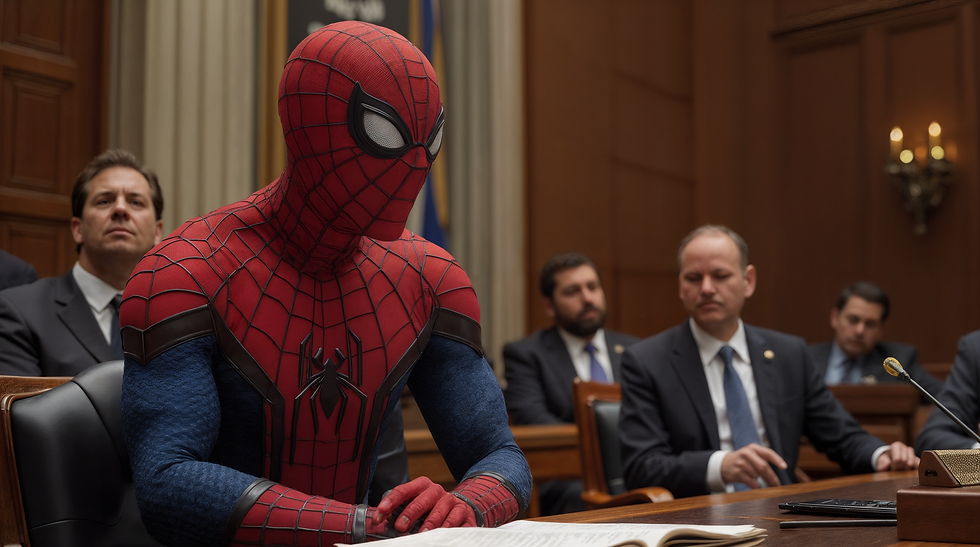Disney & Universal vs. Midjourney Lawsuit: The Copyright Battle That Could Reshape Generative AI
- Jordan Billinkoff
- Jun 14
- 3 min read

On June 11, 2025, Hollywood’s magic collided head-on with Silicon Valley’s algorithms. Disney and Universal, two titans of entertainment, filed a landmark lawsuit against Midjourney, one of the world’s most popular AI image generators.
The charge? Copyright infringement on a massive scale, an accusation that could reshape not just the future of AI, but the very core of creative industries worldwide.
The Heart of the Midjourney Lawsuit: Artistry vs. Algorithms
Disney and Universal’s complaint is blunt: Midjourney, they argue, is a “virtual vending machine” for unauthorized copies of their iconic characters, from Spider-Man and Mickey Mouse to Darth Vader and the Minions. The studios allege that Midjourney trained its AI on thousands of copyrighted images without permission, then sold subscriptions allowing users to generate endless facsimiles of beloved characters, describing it as “a bottomless pit of plagiarism”.
“Piracy is piracy, and whether an infringing image or video is made with AI or another technology does not make it any less infringing,” the lawsuit states. For Disney and Universal, this isn’t just about lost revenue; it’s about defending the creative investments that have defined international media and entertainment culture for generations.

Midjourney’s Defense: Innovation or Infringement?
Midjourney, which reported $300 million in revenue last year, has not yet formally responded in court. However, its leadership has previously likened AI training to the way humans learn, absorbing vast amounts of data to produce something new. They argue that their outputs are “transformative,” invoking the legal doctrine of fair use.
But the line between inspiration and imitation is razor-thin. Courts have historically protected works that add new expression or meaning, but AI-generated images that closely replicate copyrighted characters may not meet this standard. The outcome of this case could set a precedent that defines how, and if, AI can use copyrighted material for the foreseeable future.
Midjourney and many other AI companies facing similar lawsuits insist their work is protected under the “fair use” doctrine that allows limited use of copyrighted material without permission under certain circumstances.
A key question courts consider in these cases is whether the new work adds new expression, meaning, or message when determining if fair use applies. However, whether AI-generated images that closely replicate iconic characters meet this standard remains highly contested and central to the Midjourney lawsuit’s outcome.
Why This Case Matters: Beyond the Courtroom
The stakes are enormous, not just for the parties involved, but for the entire tech and entertainment landscape:
For Creators: A win for Disney and Universal could strengthen protections for artists, writers, and filmmakers, ensuring that their work isn’t freely mined by AI systems without compensation.
For AI Innovators: If the court rules against Midjourney, AI companies may be forced to license all training data or develop new, more restrictive models, raising costs and potentially slowing innovation.
For the Economy: Hollywood argues that unchecked AI infringement jeopardizes millions of jobs and a $260 billion industry, while the tech sector warns that overregulation could stifle a new wave of digital creativity.

A New Legal Frontier: The Questions at Stake
Does training an AI on copyrighted works, even without direct copying, constitute infringement?
Can AI-generated outputs ever be truly “transformative” under fair use law, especially when they closely mimic iconic characters?
Should AI companies be held to the same licensing standards as human artists, or does the technology demand new legal frameworks?
The Ripple Effect: What Comes Next
The Midjourney lawsuit is not an isolated battle. It joins a growing wave of legal challenges against generative AI companies, from visual artists to news organizations. The result could force a seismic shift in how AI models are trained, spark new licensing markets, or even prompt lawmakers to rewrite copyright law for the digital age.
If Disney and Universal prevail, expect AI firms to scramble for licensing deals and implement stricter safeguards, potentially making AI-generated content safer but less accessible. If Midjourney wins, “fair use” could become the shield for a new era of AI-powered creativity, but at the risk of eroding the rights (and livelihoods) of human creators.

A Defining Moment for Creativity and Technology
The Disney and Universal lawsuit against Midjourney is more than a legal skirmish; it’s a referendum on how we value creativity in the age of machines. As the courts weigh artistry against algorithms, the outcome will echo far beyond Hollywood and Silicon Valley, reshaping the rules of engagement for anyone who creates, consumes, or innovates in the digital world.
One thing is clear: the story of copyright in the AI era is just beginning, and its next chapter may be written in a federal courtroom in California.
Find the complete Midjourney lawsuit at https://media.npr.org/assets/artslife/movies/misc/midjourney.pdf



Comments